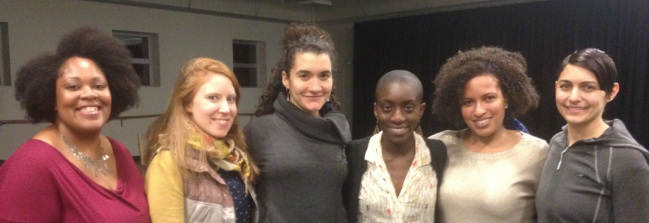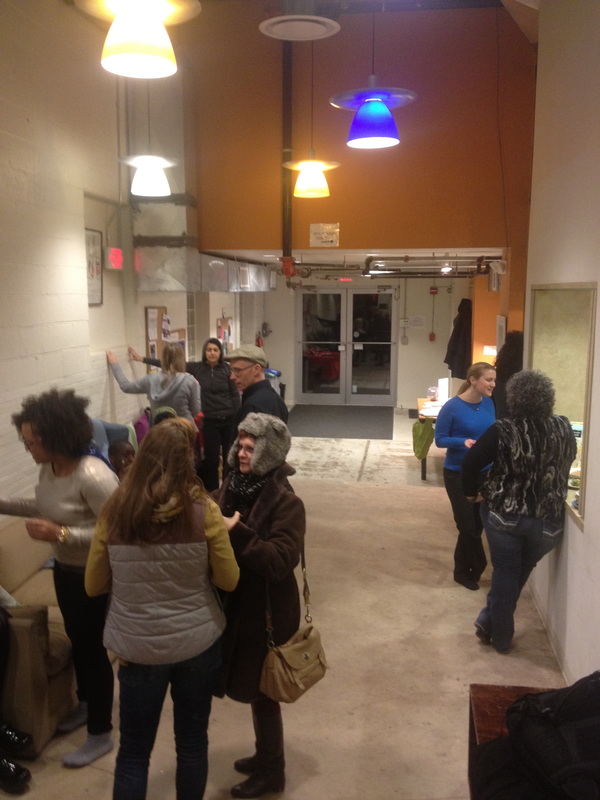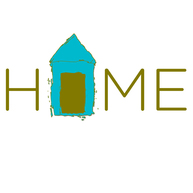 On January 16th, Dance Exchange presented “Dance Matters: A Discussion on Racial Equity and the Power of the Arts.” The facilitators were Dance Exchange's Artistic Director Cassie Meador, Partnerships and Production Manager Ouida Maedel along with University of Maryland PhD candidate Bimbola Akinbola and the panelists included featured artists Paloma McGregor, Jesse Phillips-Fein and myself. This interactive panel discussion invited participants to move, dialogue and reflect on the complexities of race and the possibilities of leveraging the arts for social change. This event is also part of Dance Exchange performance and community engagement work-in-progress, commissioned by The Embrey Family Foundation for Dallas Faces Race, in conjunction with Race Forward’s Facing Race Conference in Dallas Texas, in November 2014. 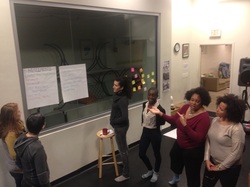 Since many of the participants were new to Dance Exchange and each other, we wanted to establish trust and create a safe space for this conversation. Additionally, we understoond that issues of race can be traumatizing for many people. Of course, this discussed at some length at the recent Playing with the Past, (W)Righting the Future panel at Georgetown University. Prior to the panel, we agreed to a list of rules:
With everyone in the room, we added:
After which, we shared what we were hoping to bring to the conversation and spent time getting to know as many people as possible one on one through a series of questions. Of course, we also moved. Cassie led us through warm-up and cool down exercises to help us address any areas on our bodies that might be holding onto tension, trauma, and unspoken pain. The panel discussion happened between the warm-up and cool down. Bimbola asked Paloma, Jesse and myself several thought-provoking questions. The following three still resonated with me:
After the discussion and final exercise, we enjoyed a lovely wine, cheese and dessert reception. During the reception and even out in the parking lot, many of us continued sharing thoughts about how artists can use their practice to address racism and achieve racial equity. I went home that night and wrote this into my journal: Tonight panel reminded of my work with Theatre Communication Group's Diversity and Inclusion We cannot accomplish the much-needed and complex work around anti-racism in isolation. I felt honored to be a part of this work with Dance Exchange. I hope to continue this collaboration. We must continue create spaces that address our concerns, invite curiosity and dialogue, heal our wounds, and move the conversation forward. Over the past six weeks, I've been in multiple conversations with theatre artists, who are tired of fighting for a change they just don't see coming. We must find ways to support each other in times of fatigue. A few days ago, I connected with the artists and facilitators to see how they were doing and where the panel left them. I wanted to hear what thoughts and questions they were still considering. They were kind enough to share their thoughts with me and I've included them for you here: 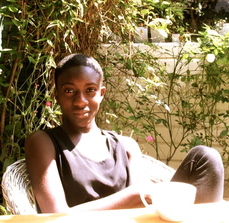 From Bimbola Akinbola: What has remained with me is the thought that we need to think deeply as a community about what we create from places of anger, pain, sadness or anxiety, and how our art can honor these emotions rather than brush them under the rug. 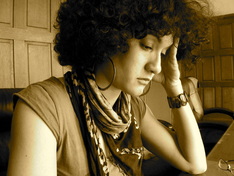 From Paloma McGregor: I'm still thinking about how we come together across racial lines and within them with a collective desire to understand and combat the systems that privilege white people every day in ways that can be hard for them to face or even recognize. I'm still thinking about how these systems have conditioned and dehumanized all of us. I hope we can continue to create and perpetuate practices and spaces that help us to stay grounded in our struggle while also unearthing and centering our hopes and visions, so that we are moving toward a more equitable future. I believe art making practice, in coalition with front-line organizing, can help us to keep our spirits and bodies moving toward equity. 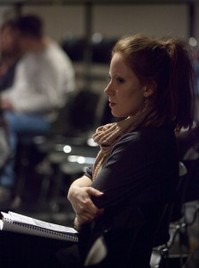 From Cassie Meador: I am still questioning once people know they have privilege, what do they do from there? How do you acknowledge and make use of your privilege to enter into the work of advancing racial equity? I am still thinking about how we can’t afford to excuse ourselves from the conversation because it is challenging. We can’t afford to back away because of worry about what we have not recognized or questioned more deeply before this moment. We must be willing to confront the barriers personal and systemic that have prevented us from seeing and taking action. As hard as it may seem, each of us can only step into the conversation and begin from where we are now. From this place we must then enter into the stream of work and healing that is being done to build effective coalitions and move racial equity forward. It is comforting to know you don't have to stay where you are, you have a distance to travel, and new ways of seeing and understanding to move towards. I am still thinking about how we look beyond the surface to really consider the minute workings of systemic oppression. I am still thinking about all of the dismantling, uncovering, and unmaking that is necessary to move the barriers that prevent us from recognizing institutionalized inequities. I am struck by the creative potential surfaced when we engage in this process of unmaking and dismantling, and I am deeply interested in the ways I see artists leveraging creative strategies to advance racial equity. I move forward with gratitude to the panelists who offered us opportunities to acknowledge our personal journeys, while also being instrumental in putting dimensions of privilege into the discussion. I move forward from our conversation with a strong desire to examine and confront further the ways that privilege influence my own work culture, both organizationally and within the larger arts and culture sector. 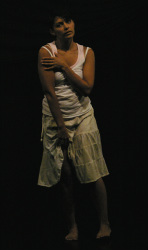 From Jesse Phillips-Fein: "What resonates with me is a need to connect our personal stories to our collective histories. What resonates with me is a desire to continue to raise up conversation and action on what makes cross-racial collaboration healing, powerful, and transformative, instead of a form that continues cycles of oppression masked by the facade of multiculturalism and "inclusion." Why were there so many white people in the room? What dynamic does that form and how we can we aware of and responsive to that?" 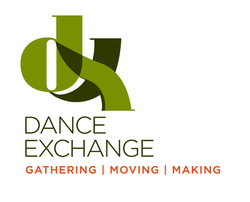 Dance Exchange breaks boundaries between stage and audience, theater and community, movement and language, tradition and the unexplored. Founded in 1976 by Liz Lerman and now under the artistic direction of Cassie Meador, Dance Exchange stretches the range of contemporary dance through explosive dancing, personal stories, humor, and a company of performers whose ages span six decades. The work consists of concerts, interactive performances, community residencies, and professional training in community-based dance. Dance Exchange employs a collaborative approach to dance making and administration. Recent and current projects include explorations of coal mining, genetic research, human rights, particle physics, ecology, land use, and rest in a hyper-driven society. For more information, visit danceexchange.org.
0 Comments
Your comment will be posted after it is approved.
Leave a Reply. |
My BlogI'm a playwright, dramaturg, and teaching artist. It is here where you'll find my queries and musings on life, theater and the world. My posts advocate for diversity, inclusion, and equity in the American Theatre and updates on my own work. Please enjoy!
Categories
All
Archives
June 2020
Reading List
|
